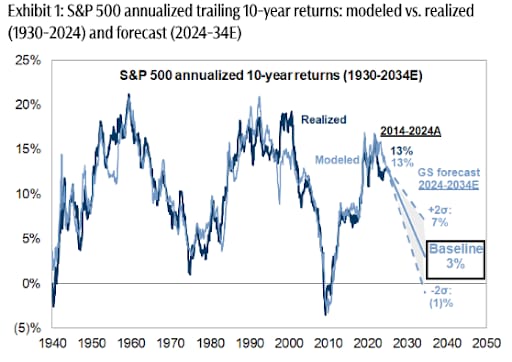- World Population Review Newsletter
- Posts
- Who’s Winning the Satellite War Over Earth?
Who’s Winning the Satellite War Over Earth?
Tracking the powers, players, and profits in Earth’s new orbit race.
Greetings, sharp-eyed watcher of Earth and orbit,
Satellites are no longer just Cold War relics or billionaires’ toys. They’re everywhere—beaming internet, scanning crops, tracking warzones, and quietly redrawing the world’s power map.
What was once NASA vs. Roscosmos is now a global scramble. Private companies. Rising nations. And yes—some serious surveillance.
In this edition, we track the satellite surge and what it means for your privacy, your wallet, and the planet itself.
Ready for liftoff?
7 Actionable Ways to Achieve a Comfortable Retirement
Your dream retirement isn’t going to fund itself—that’s what your portfolio is for.
When generating income for a comfortable retirement, there are countless options to weigh. Muni bonds, dividends, REITs, Master Limited Partnerships—each comes with risk and oppor-tunity.
The Definitive Guide to Retirement Income from Fisher investments shows you ways you can position your portfolio to help you maintain or improve your lifestyle in retirement.
It also highlights common mistakes, such as tax mistakes, that can make a substantial differ-ence as you plan your well-deserved future.
Once the undisputed space leader, the U.S. has doubled down—not just with NASA, but through the booming private space sector. Elon Musk’s SpaceX alone accounts for over half of all active satellites in orbit. But behind the starry headlines is a massive infrastructure quietly reshaping global life.
🔹 The Pentagon now sees satellites as essential to national defense and deterrence.
🔹 Commercial demand—from GPS to satellite broadband—is generating billions.
🔹 NASA, once alone in the cosmos, now partners with dozens of private companies for science, surveillance, and shipping.
Did you know? Starlink satellites now cover almost every square inch of Earth’s landmass—offering internet in war zones, rural areas, and cruise ships.
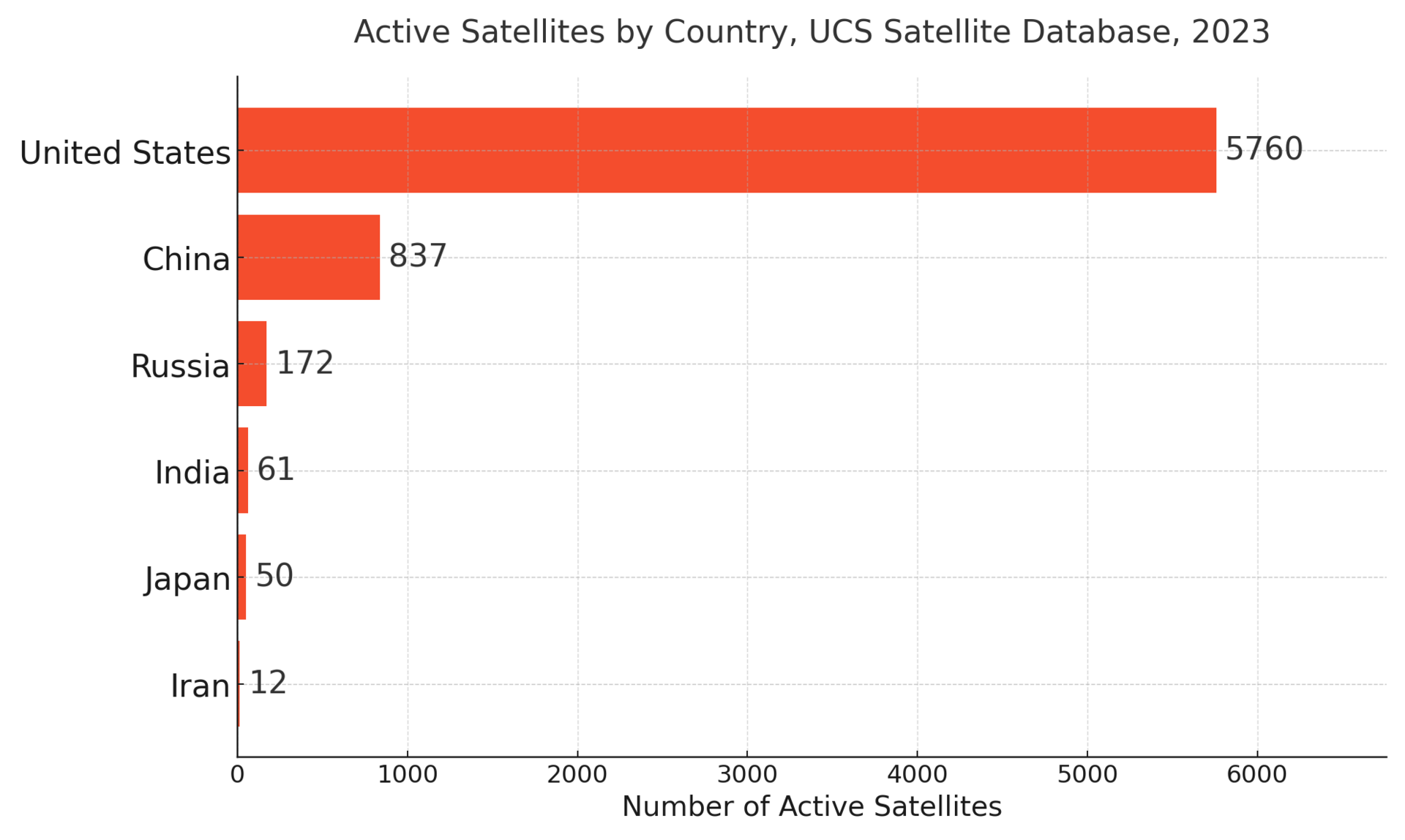
While the U.S. dominates headlines, China has emerged as the quiet powerhouse of space infrastructure. Its satellite program is not only massive but deeply integrated into military, agricultural, and diplomatic strategy.
🇨🇳 China’s Beidou satellite system rivals GPS—and is now required for many smartphones, vehicles, and ships in China and its partner countries.
🇨🇳 It launched over 200 satellites in the past five years, focusing on high-resolution Earth imaging, communications, and maritime tracking.
🇨🇳 China also actively exports satellite tech to African, Latin American, and Southeast Asian nations—building allegiance in orbit.
Unexpected twist: China's "space silk road" is shaping a parallel internet and navigation infrastructure beyond Western control.
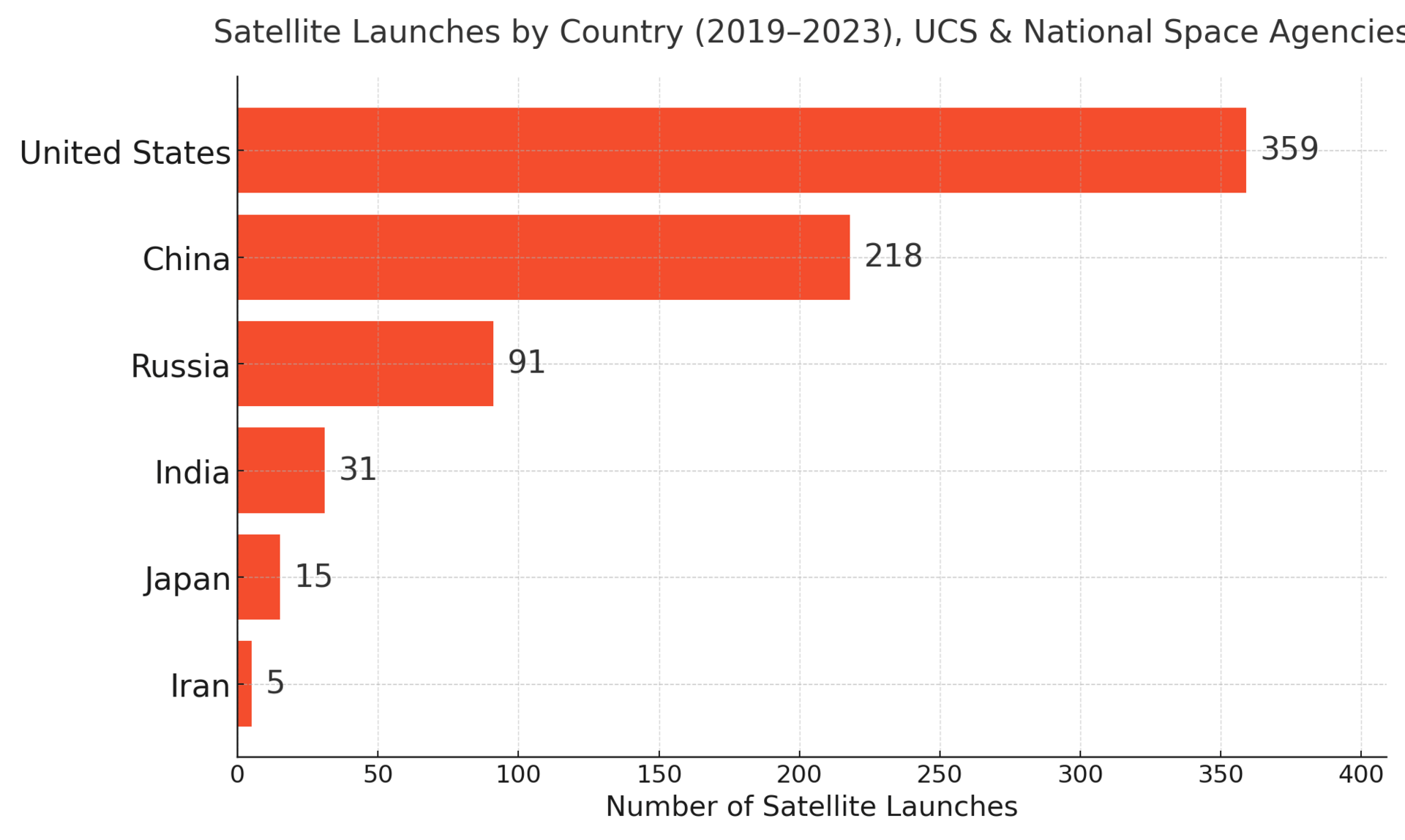
India’s space program, once considered budget-bound, now exemplifies cost-effective innovation. ISRO’s satellite launches are not just national triumphs—they’re a booming export service.
🇮🇳 India sent 104 satellites into orbit on a single rocket in 2017—a world record.
🇮🇳 Its Earth observation satellites help with disaster response, crop monitoring, and urban planning.
🇮🇳 India has launched satellites for over 30 countries, offering low-cost commercial rideshare options.
Insight to note: India’s space budget is 20x smaller than NASA’s, but pound-for-pound, it’s one of the most efficient—and diplomatic—players in orbit.
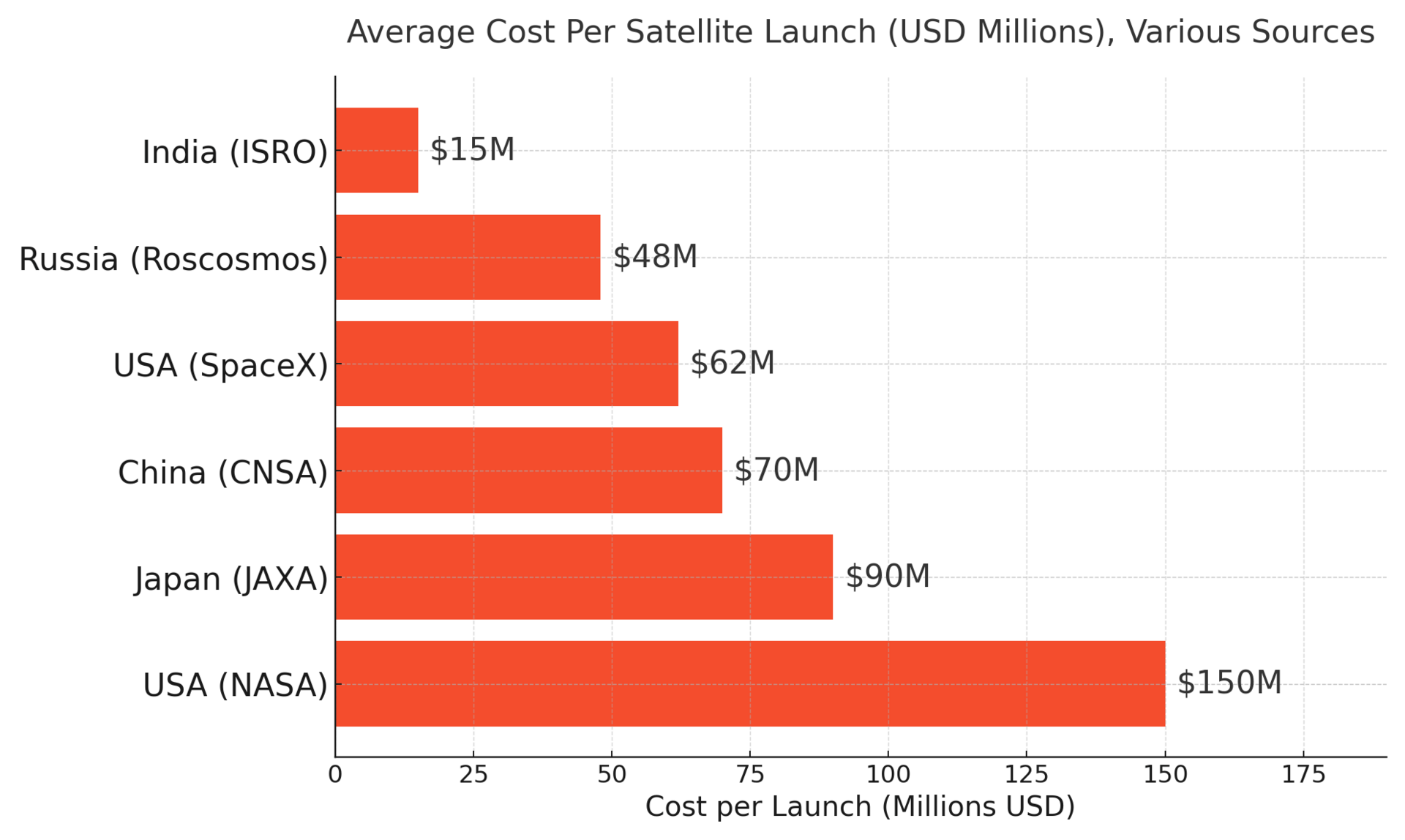
Wall Street Isn’t Warning You, But This Chart Might
Vanguard just projected public markets may return only 5% annually over the next decade. In a 2024 report, Goldman Sachs forecasted the S&P 500 may return just 3% annually for the same time frame—stats that put current valuations in the 7th percentile of history.
Translation? The gains we’ve seen over the past few years might not continue for quite a while.
Meanwhile, another asset class—almost entirely uncorrelated to the S&P 500 historically—has overall outpaced it for decades (1995-2024), according to Masterworks data.
Masterworks lets everyday investors invest in shares of multimillion-dollar artworks by legends like Banksy, Basquiat, and Picasso.
And they’re not just buying. They’re exiting—with net annualized returns like 17.6%, 17.8%, and 21.5% among their 23 sales.*
Wall Street won’t talk about this. But the wealthy already are. Shares in new offerings can sell quickly but…
*Past performance is not indicative of future returns. Important Reg A disclosures: masterworks.com/cd.
Europe isn’t launching rockets with the same ferocity as the U.S. or China, but it is quietly carving out a different kind of orbital authority: regulation, data privacy, and precision science.
🇪🇺 The EU’s Galileo satellite system offers GPS-level accuracy with civilian oversight.
🇪🇺 Copernicus, the Earth-observing satellite system, provides open climate data to governments, scientists, and businesses worldwide.
🇪🇺 European companies like Airbus and Arianespace are still major players in satellite manufacturing and launch services.
Did you know? Galileo’s positioning accuracy is finer than GPS—and it’s free from U.S. military oversight.
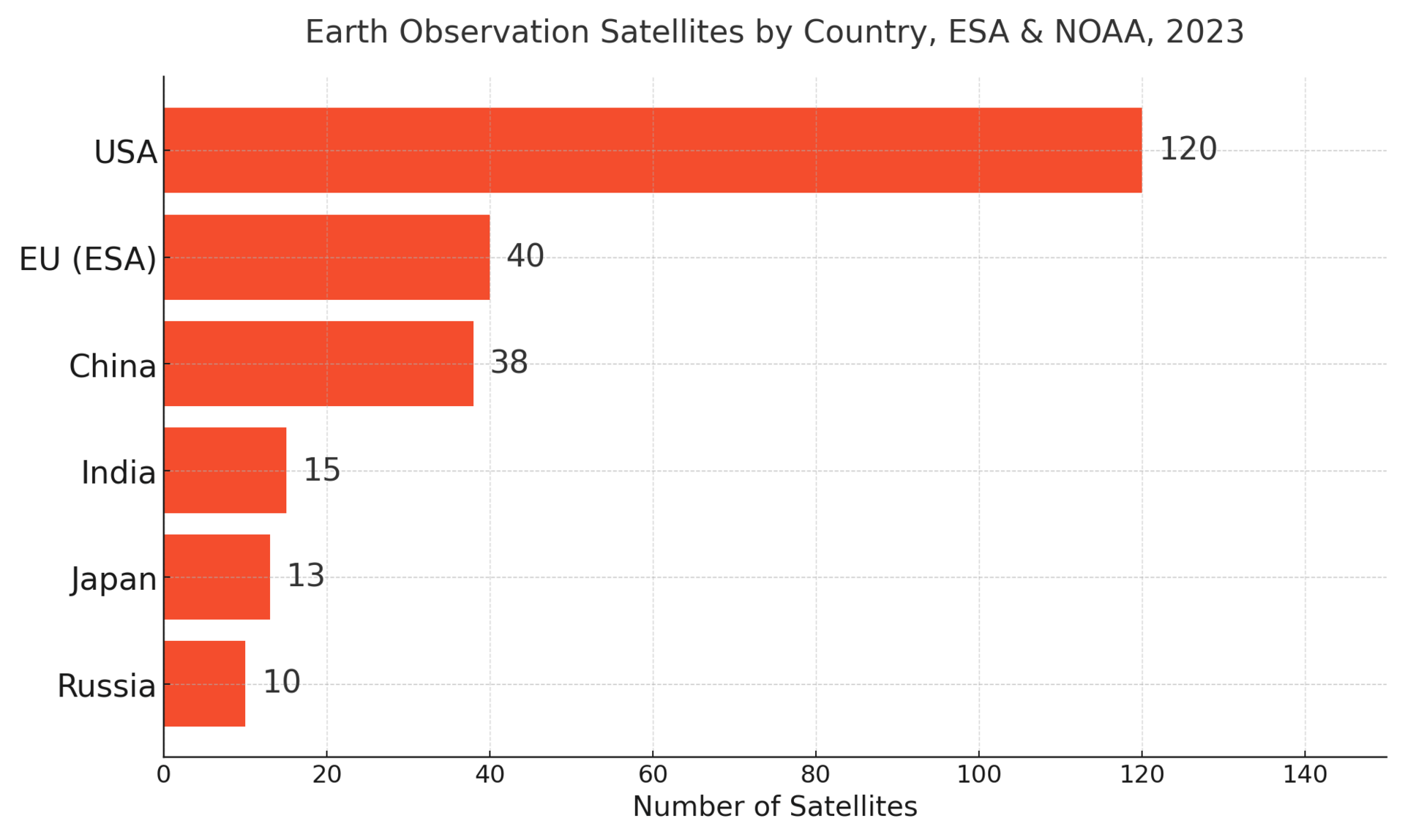
Space used to mean superpowers. Now, it means startups and billionaires. The private sector is no longer a passenger—it’s the pilot.
🚀 SpaceX is launching more satellites than every nation combined—serving both private customers and the U.S. military.
🚀 Amazon’s Project Kuiper aims to send 3,236 satellites to compete with Starlink.
🚀 Smaller firms like Planet Labs and ICEYE provide near-real-time imagery of anywhere on Earth—for agriculture, insurance, and disaster relief.
Surprising trend: Over 90% of satellite launches in 2024 were private-sector-funded. We're witnessing the Uber-ization of space.
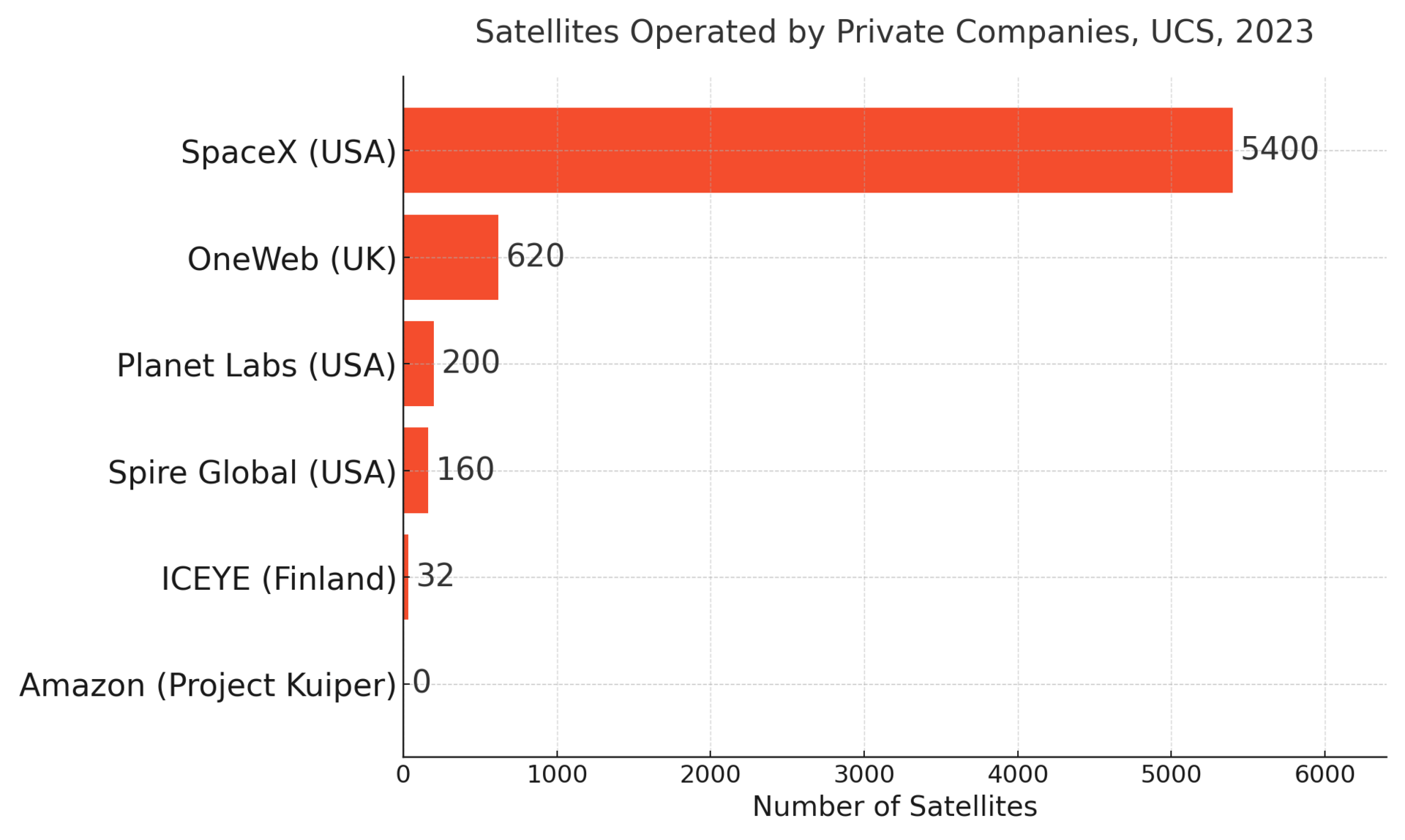
In a surprising twist, many countries with limited terrestrial infrastructure are turning to satellites for connectivity, agriculture, and defense.
🌍 Nigeria and Kenya are investing in their own low-Earth satellites for crop monitoring and education.
🌍 Brazil's satellite program supports Amazon deforestation tracking and disaster response.
🌍 The UAE and Saudi Arabia are pouring billions into space tech, seeking post-oil economic futures.
Remarkable fact: Rwanda became the first African country to host a satellite factory—in partnership with a British firm.
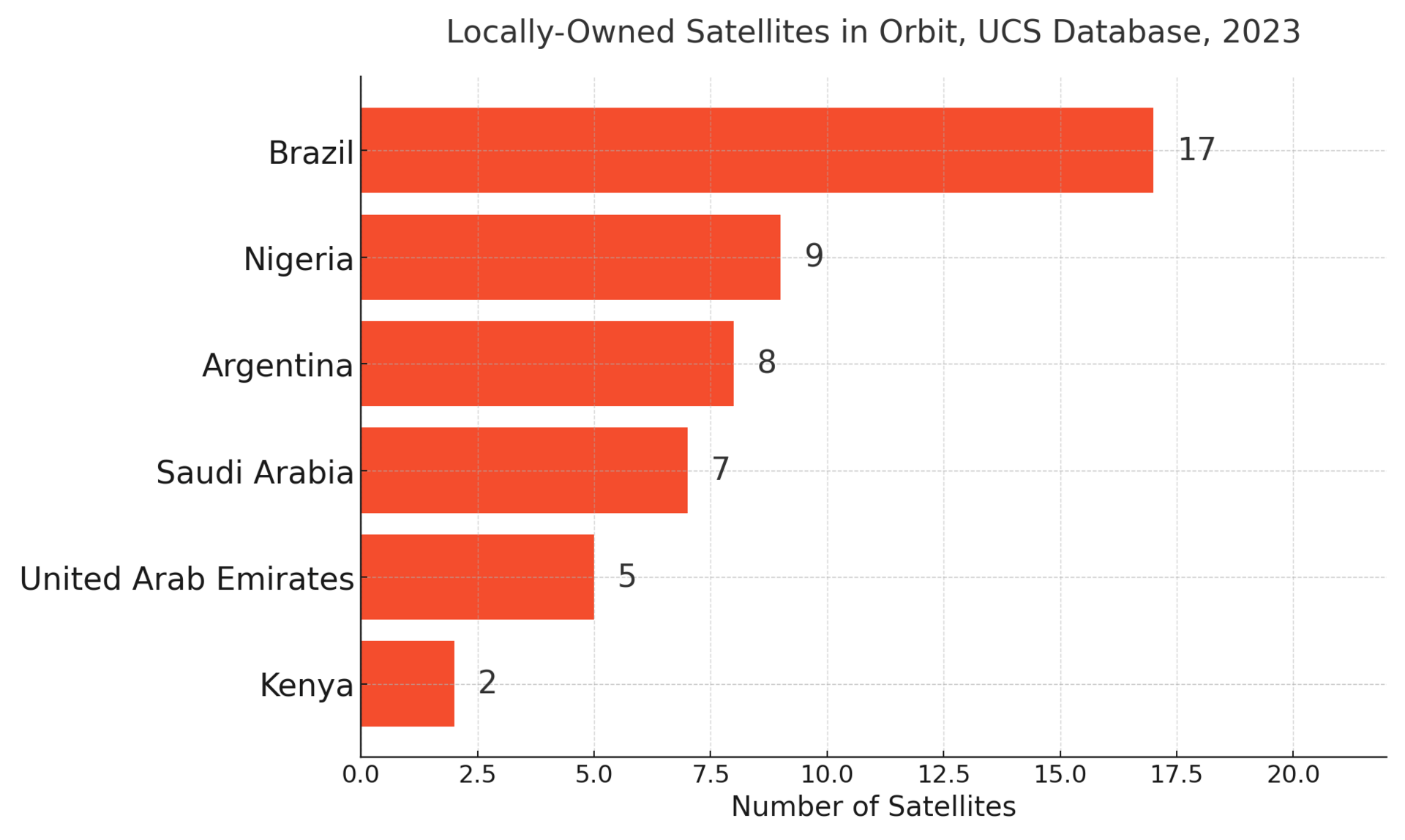
With tens of thousands of satellites circling Earth—and tens of thousands more planned—we face an uncomfortable truth: space is getting crowded.
🛰️ Satellite collisions now pose serious risks to other satellites, space stations, and astronauts.
🛰️ "Space junk" can travel at 17,500 mph—fast enough to obliterate anything in its path.
🛰️ International laws lag far behind satellite launches, leaving a regulatory vacuum in low Earth orbit.
Eye-opening stat: NASA currently tracks over 35,000 pieces of debris larger than 10 cm—and estimates hundreds of thousands of smaller ones.
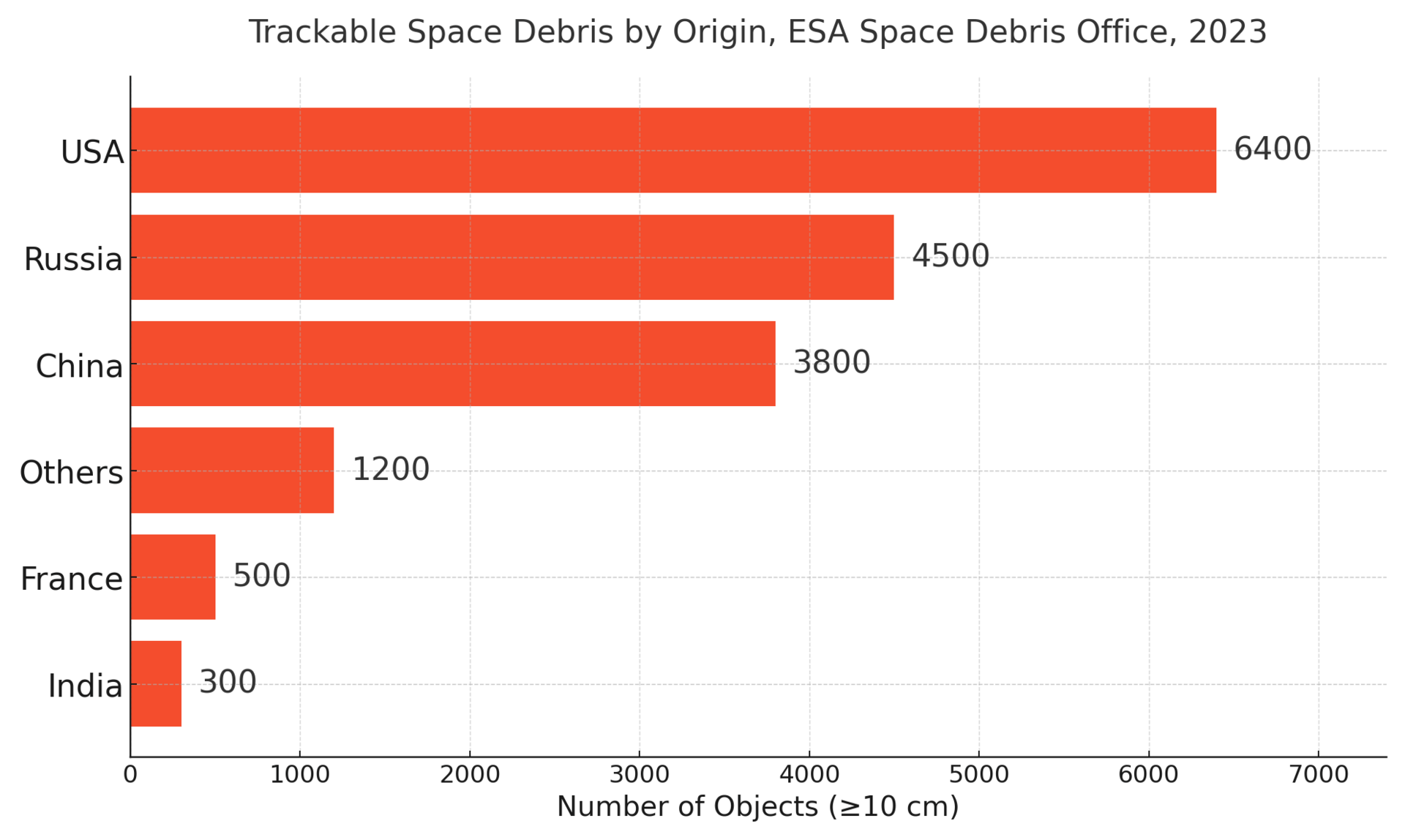
What used to be science fiction is now overhead—24/7. Satellites are quietly reshaping how we live, work, fight wars, and connect.
This isn’t just a space race. It’s a full-scale remapping of Earth from above—and you’re in the middle of it.
So stay sharp. Look up. The sky is no longer the limit… it’s the battleground.
Warm regards,
Shane Fulmer
Founder, WorldPopulationReview.com
P.S. Want to sponsor this newsletter? Reach 138,000+ global-minded readers — click here!


